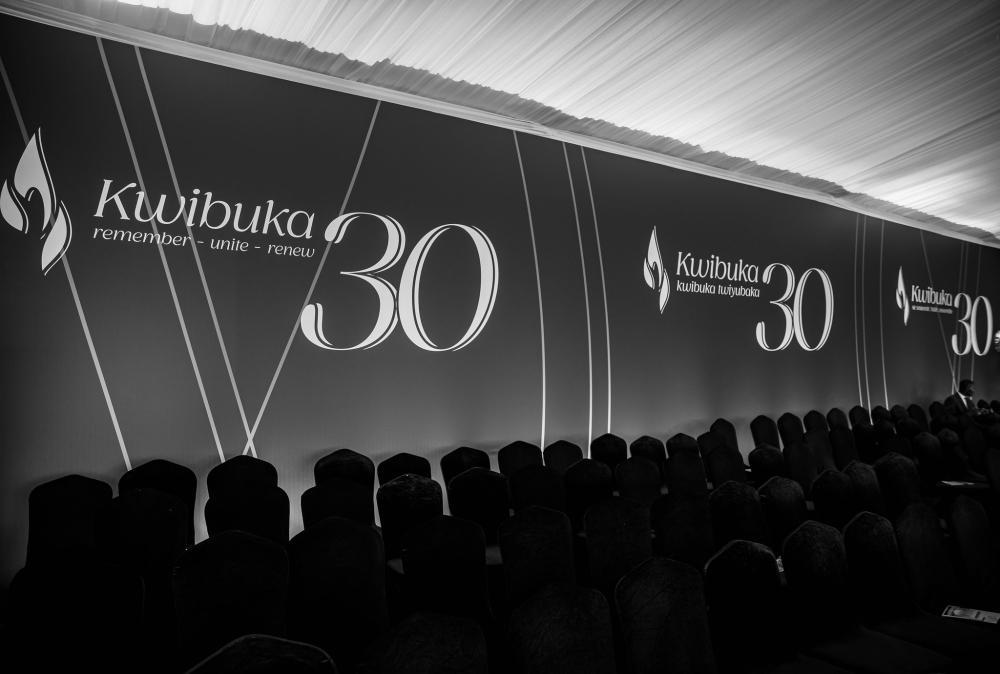Nelson Kitofu
Africa-Press – Rwanda. Kwibuka is always a powerful moment of retrospective. It is an important call to reflect on the horrific events and ideologies that led to the 1994 genocide against the Tutsi. In the wake of one of humanity’s darkest chapters, Rwanda has emerged as a beacon of hope, resilience, and economic development.
Kwibuka 30 in particular, highlights the 30-year journey of fostering national unity, reconciliation, and sustainable growth. It also allows us to reflect on the enduring impact of history on our collective identity and the role organizations and private institutions play in shaping it. Our work and professions are a central aspect of our lives, not only in proving our livelihood but also in shaping our identities, influencing how we perceive ourselves and engage with our communities. Therefore, what should be the role or organizations and private institutions in kwibuka?
Investing in educating people and building a sanity work environment. In Rwanda’s pursuit of national unity and reconciliation, organizations and private institutions, should invest in educating their employees about the country’s history, conflict resolution, critical thinking, and empathy among other social skills. They can do this through workshops, seminars, visiting memorial sites, or incorporating education modules into employee training programs. Creating working environments that foster unity, sanity, respect, and equal opportunity for everyone should be prioritized not only during the Kwibuka period but as an ongoing cultural practice. By prioritizing the well-being of employees and promoting a culture of understanding, organizations can contribute to shaping individual identities and cultivating a collective identity of ndi umunyarwanda.
Support the survivors. Kwibuka is a reminder to organizations and private institutions of their corporate social responsibilities and its significance in a space where the scars of the past are still healing and the pursuit of reconciliation going on. Even after 30 years since the 1994 genocide against the Tutsi, many survivors still face challenges, including poverty and limited access to basic needs and services. Organizations and private institutions should embrace the responsibility to support survivors and help address root causes of social inequality and division through providing financial assistance, or supporting initiatives and charities dedicated to survivor assistance.
Fuel messages of hope and unity. Organizations and private institution should leverage their platforms to amplify and fuel messages of hope, national unity, humanity, and a common bright future. It is imperative to always bear in mind that Rwandans are on a healing journey and therefore inspire positivity and inclusiveness through our advertising campaigns, community engagement initiatives, product design, user experiences, and other different ways. By embodying sympathy and the spirit of kwibuka in their messaging, Organizations and private institutions can contribute to healing the wounds of the past and building a more cohesive society.
Making Kwibuka a way of life. Kwibuka is not just a commemorative event; it’s a guiding principle that informs Rwanda’s ongoing journey of renewal and reconciliation. Organizations and private institutions can play a pivotal role in institutionalizing the values of remembrance, unity, and resilience within their organizations and communities. This could involve integrating Kwibuka into company culture, policies, and practices, and actively promoting a culture of empathy, understanding, and solidarity.
As we remember and honor the victims of the 1994 genocide against the Tutsi and reflect on the lessons learned in the healing journey, let’s also dream of a world free of genocide, hatred, and violence—a world where all Rwandans live a dignified life of unity. This world is only possible if we all strive for it together. Twibuke twiyubaka.
The author is the Business Operations and Marketing Lead at Pixeleye. He is also a member of the Peace and Love Proclaimers, an organization that initiated the Walk to Remember and Ku gicaniro among other initiatives. His experiences in both the corporate and non-profit sectors have shaped his understanding of the role organizations and private institutions can play in promoting unity and reconciliation.
Source: The New Times
For More News And Analysis About Rwanda Follow Africa-Press






